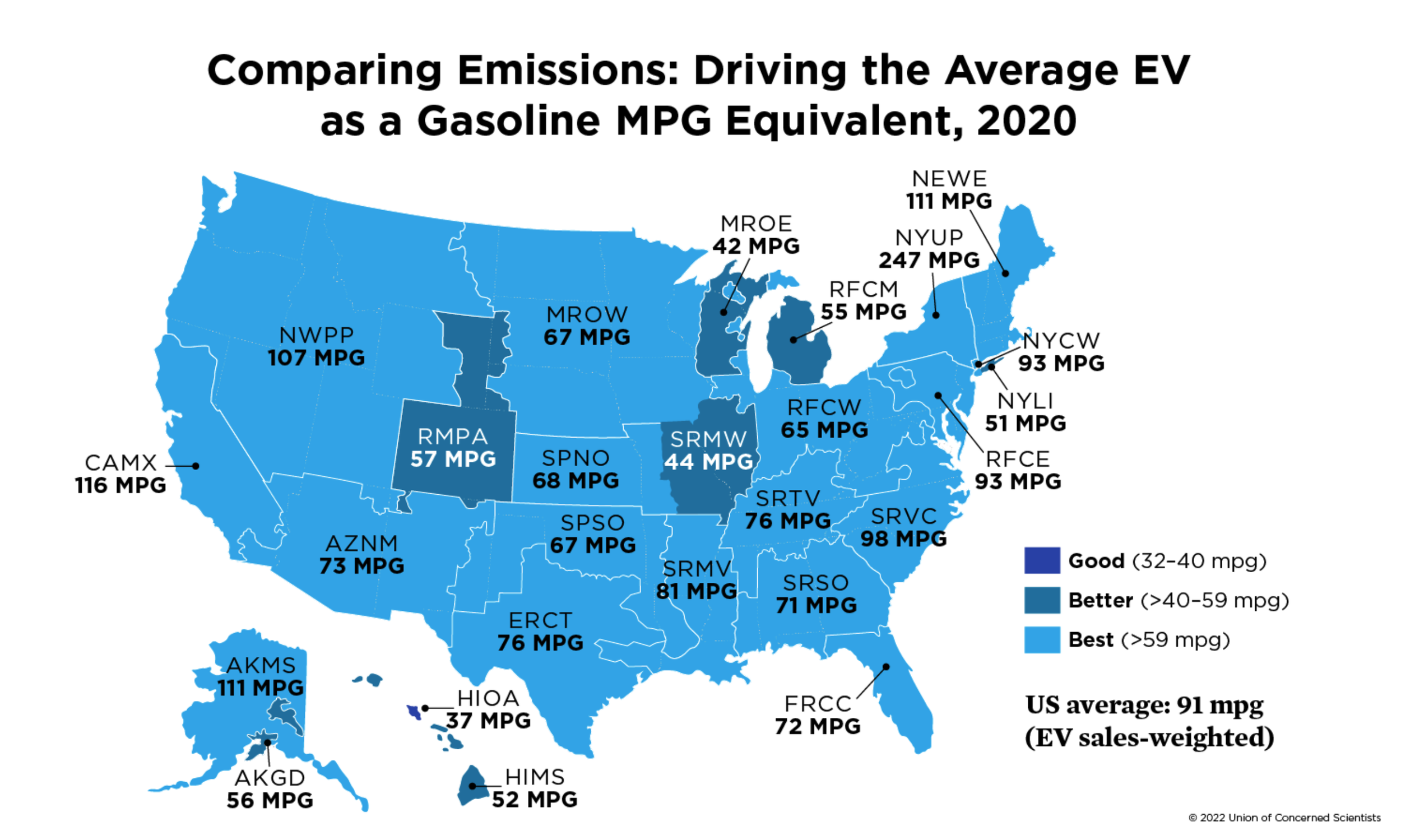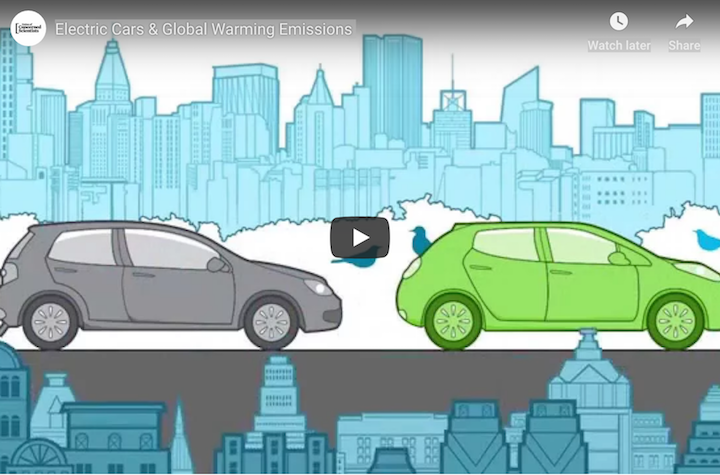Fact: Electric cars are much cleaner than gas powered cars
EVs are cleaner than gasoline powered cars because electric motors are far more efficient than gasoline engines. And, as electricity has become cleaner, EV emissions have declined. An EV charged with reneweable energy will create Zero emissions per mile.
It is true that and EV produces fewer emissions in some parts of the country than in other parts. This is because the electricity needed to charge the battery is cleaner in some states than in others, since some states rely more on coal and others have higher renewables generation. Even with that consideration, EVs are at the very least equivalent to a car which gets very high mileage and on average, an EV gets the equivalent of 91MPG in the US. In Oregon, you would have to drive a gasoline car that gets over 107 MPG to improve upon the emissions profile of an EV. The below map from the Union of Concerned Scientists, shows the MPG equivalents of an EV for each area of the country based on the carbon intensity of the electric grid in that region. Also, keep in mind that the average fuel economy for a vehicle in the US is 24.7 MPG.
This means that an EV in the US will produce on average roughly one third of the operating emissions of a typical gasoline powered car.
And if that EV is powered with renewable energy, its emissions will be zero.
Carboncounter.com was build by engineers at MIT and lets you choose from hundreds of specific models of EV, hybrid and gas powered cars to compare cost of ownership and emissions. You can customize to choose your state, your driving habits and much more. The bottom line is that EVs are similar in lifetime costs to cars with sticker prices $10,000 less and will produce less than half the emissions even with the battery production included.
Next lets talk about batteries.
"Over their lifetime, battery electric vehicles produce far less global warming pollution than their gasoline counterparts—and they’re getting cleaner." Union of Concerned Scientists
Most of the manufacturing energy required to produce an EV is very similar to what it takes to build a regular gasoline powered internal combustion engine vehicle (ICE). The batteries however are more energy intensive to produce than the other parts of the vehicle so a typical EV will take between 15% to as much as 68% more energy to produce depending on the size of the battery pack. This difference however will be recovered very quickly once the vehicle begins operation. Because electricity is so much cleaner than burning gasoline, the additional manufacturing emissions will be recovered within 6-18 months of operation depending on the size of the battery, how much you drive and how clean the electricity you use. If you are charging with 100% renewable energy, that will cut this recovery time essentially in half.
Here is a great video explaining this.
So, over the complete lifecycle of an EV, it will emit around half as much carbon as an equivalent gasoline or diesel powered vehicle and much less than that if it is charged with renewable energy. This data comes from a very careful study conducted by the Union of Concerned Scientists.
Are the materials in EV batteries bad for the environment?
Most EVs are powered by lithium-ion batteries. This is the same battery technology that is in our cell phones, laptops and other cordless electric products. At the moment, the electronics industry is the largest user of these battery materials, but as EVs grow in popularity, they will become a large user as well. There are some legitimate concerns about the sourcing and disposal of these batteries which carmakers as well as electronics producers are grappling with. For instance, some countries which produce cobalt, an ingredient in many batteries, have histories of poor labor practices. Many companies like Tesla and Apple purposely source their materials to avoid those problems. Some newer battery lithium-ion technology does not use cobalt at all. Battery recycling has also become more available and companies are emerging to drive the recovery of these expensive materials. Finally, battery technology is one of the largest areas for R&D investment in the world today. Progress on new battery technologies is being made which will continue to make them cheaper and easier to produce, and will avoid hard to source materials. Here is a link to a good article from The Union of Concerned Scientists on this topic of the materials in batteries, but the bottom line is that the materials used to produce batteries should not be used as a reason to avoid switching to an EV.




